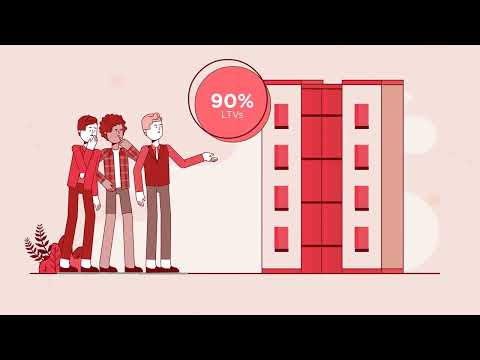Unpacking the Warrantable Condo Concept for Prospective Buyers
Navigating the maze of the property market, buyers might stumble on a term that’s as important as it is mysterious: the warrantable condo. If you’re considering dipping your toes into the condo market pool, knowing the deep end from the kiddie side – that’s the difference between warrantable and non-warrantable condos – can save you from a world of hassle. So, why does this classification make waves in the ocean of real estate? Simple: it’s about getting the green light for financing.

A warrantable condo meets certain criteria set by government-sponsored enterprises (GSEs) like Fannie Mae and Freddie Mac. In layman’s terms, it’s usually less risk for a lender, which means it’s more likely they’ll loan you the dough.
On the flip side, non-warrantable condos can include those pesky investment properties with a riptide of short-term rentals, or a development where one person owns more than 10% of the units – talk about putting all your eggs in one basket!
Now, let’s get to the heart of the matter: financing. Banks and lenders love playing it safe, and a warrantable condo is like a life jacket in the sea of lending. We’ll walk you through what makes a condo a safe bet for lenders and a smart choice for you.

The Path to Warrantable Condo Approval: Understanding the Criteria
Alright, so you want to get your hands on a warrantable condo – what’s the secret handshake? First off, it’s no covert club; it’s about having your ducks in a row. Here’s the nitty-gritty of what ticks the boxes for warrantable condos:
- A significant chunk of the units must be owner-occupied or second homes.
- No single entity can own too many units in the complex – talk about not putting all your eggs in one basket!
- The homeowners’ association (HOA) must be on the ball with budgeting and have funds set aside for a rainy day.
These GSE guardians – mainly Fannie Mae and Freddie Mac – have set these standards not to make life hard, but to keep the market ticking like clockwork.
![Financing a Non-Warrantable Condo [DSCR Loan Options]](https://www.mortgagerater.com/wp-content/cache/flying-press/3pVsxkut2nI-hqdefault.jpg)
Sometimes, you’ll hit roadblocks – an HOA not keeping tootsies in line or a budget that couldn’t buy a coffee. Here’s a hot tip: roll up your sleeves, get involved in the HOA, and turn that spot into a warrantable wonder.

| Criterion | Description of Warrantable Condo Criteria | Relevance for Buyers/Lenders |
| Owner-Occupancy Ratio | At least 50% of units must be owner-occupied or second homes. | Decreases the risk of investment for lenders as these properties are often better maintained. |
| Delinquency | No more than 15% of homeowners can be delinquent on association dues. | Indicates financial stability within the condo association, reducing the risk for the lender. |
| Investor Ownership | Typically, a single entity cannot own more than 10% of the units. | Prevents market domination by a single investor and promotes a diverse community, which is more attractive to lenders. |
| Commercial Space Limitation | Commercial space must generally be less than 25% of the total building. | Ensures the property is primarily residential, which aligns with residential mortgage requirements. |
| Insurance Requirements | Adequate insurance must be obtained by the condo association. | Protects the property against damages, reducing potential losses for owners and lenders. |
| Reserve Study and Funding | Condo association must have a reserve study and allocate funds accordingly. | Ensures that the association can cover future repairs and maintenance without imposing special assessments. |
| Litigation | The condo association should not be involved in significant litigation. | Legal disputes can affect the financial stability and the reputation of the property. |
| Budget Review | The condo association must have a proper and current budget. | Demonstrates responsible financial management which is assuring for residents and lenders. |
| Condition of Properties and Common Elements | Property must be in good repair and maintain quality standards. | Indicates less likelihood of future large-scale repairs that could affect the value or cost of living. |
| Fidelity Insurance | Often required especially for bigger projects to protect against fraud. | Guards the association’s finances which in turn affects the stability of the investment. |
The Financial Implications of Owning a Warrantable Condo
Let’s chew on the pros and cons, financially speaking. Invest in a warrantable condo, and you’re gold – better mortgage rates, easier selling down the line. Think of it as a stamp of approval that hollers, “This is a solid investment, folks!”
Trouble in paradise? Only if it’s not warrantable. That’s where you find trickier financing, typically with a higher interest rate to boot.
Speaking of boot, warrantable status helps kick your condo’s resale value up a notch. Plus, you’ve got options from the buffet of mortgages, including those tasty FHA and VA loans (VA Loan)
Decoding the Documentation for Warrantable Condo Approval
Before going headlong into this, you’ll need to gather an arsenal of paperwork. That’s your budget and financial statements, condo association bylaws, and insurance documents – to name a few.
The secret to not getting buried under a paper avalanche is to keep things neat and tidy. Organize, label, and maybe use one of those fancy document-collecting apps. If you feel like you’re in over your head, don’t be shy about getting professionals to wade through the paperwork with you.
Legal and Regulatory Considerations in the Warrantable Condo Arena
What’s hot off the press in the world of legal mumbo jumbo? Changes that make it easier to qualify condos as warrantable. There’s a whole list of legal protections too – think lemon laws but for condos!
HOA rules can throw a curveball, though. Make sure the HOA is more Boy Scouts and less rebels without a cause, following rules that keep the place warrantable.
Insider Strategies for Speedy Warrantable Condo Approval
Feeling the need for speed? Industry pros spill the beans – it’s about dotting ‘Is’ and crossing ‘Ts’ on documentation. It’s those eagle-eyed professionals, used to rattling cages at banks and understanding the walk-through (walk-through) with an inspector’s eye.
Peek at the case studies; they’re like those well-loved recipe books full of secrets. There’s a reason they say success leaves clues, and so does failure, for that matter.
The Future Landscape for Warrantable Condo Ownership
Condos are going green, getting smart, and doing it in style. The warrantability bar might shimmy up a notch with these innovations. As the condo market evolves, expect the GSEs to update their dance steps too. Stay on your toes, and keep an eye on the horizon for those changes in criteria.
Maintaining Warrantable Status: A Long-Term Commitment
Here’s where the long game comes into play. Condo associations need to be more marathon runners than sprinters. It’s about that perpetual balance – following GSE guidelines like they’re the Ten Commandments. It’s a team effort to keep that status, with regular check-ins and a proactive HOA.
One wild party of a bylaw change or misstep in a budget, and boom, you’re back to square one.
Case Studies: Lessons Learned from Warrantable Condo Approvals and Rejections
Real-life examples? You got it. Dive into those juicy stories where one smart cookie got approval thanks to an all-star HOA, or that cautionary tale where a condo fell into the non-warrantable pit because of an oversight in the master insurance policy.
The takeaway – attention to detail and a proactive strategy can make or break the deal.
The Purchaser’s Blueprint: Step-by-Step Guide to Acquiring a Warrantable Condo
To bag yourself a warrantable condo, start with a solid checklist. Make sure your financing is ready to roll, and your real estate team knows you’re looking for that gold star of condos.
Don’t forget to schmooze with lenders versed in the ins and outs of condos. They’ll be the ones who can make your condo dreams come true, without getting tangled in red tape.
Tools and Resources for Navigating Warrantable Condo Approval
Enter the digital helper – software that can track your paperwork without breaking a sweat. Also, don’t undervalue those online chit-chats on forums. Somebody in cyberspace has walked the path before, why not pick their brain?
For those who like to hit the books, there’s plenty of recommended reading to eat up. Getting savvy on the topic spells success.
Conclusion: Charting a Confident Course in the Warrantable Condo Market
So there you have it, the whole enchilada on warrantable condos. The right move means you tap into a world of opportunities. Stay sharp, use the tools and resources at your disposal, and keep your condo compass pointing to warrantable.
Remember, you’re now armed with insights that go above and beyond, so go out there and conquer the warrantable condo market. Your prospective condo castle awaits!
Unlocking the Mysteries of a Warrantable Condo
Ever wonder what makes a condo warrantable? It’s like finding out if Andrew Tate has a kid, you just can’t help but be curious! But worry not, we’re here to shoo away those clouds of confusion with some fun trivia and nifty little facts about warrantable condos. Hang tight, because we’re diving in!
The “Employment Status” Connection
Believe it or not, your job can make or break the deal when it comes to scoring a warrantable condo. Picture this: You’re all psyched to buy this sleek condo, and the lender hits you with a Verification Of Employment. Yup, they wanna know if you’re as stable in your career as a three-legged chair at a tap-dancing class. So, if you’ve got your employment ducks in a row, you’re one step closer to your condo dream!
A Financial Walkthrough
Nope, not talking about a breezy stroll in the park. A Walkthrough or walk-through could be the financial inspection of your life. Lenders get really nosy with a breakout star called Verification Of Deposit. That’s right — they’re checking if your bank account is standing taller than a Maui palm tree before the infamous Maui fire death toll. So before you set those housewarming party dates, better make sure your financial house is in tip-top shape.
The Lifestyle Check
Okay, let’s take a breather from all the financial stuff and talk lifestyle. Living in a warrantable condo is like finally nailing the perfect protein bowl recipe. It’s all about balance. You’ve got amenities, location, and maybe even a kickin’ HOA that handles things smoother than a barista whips up your favorite frothy latte. But remember, condo living isn’t for folks who dream of mowing lawns or fixing rooftops on a sunny Sunday afternoon.
Entertainment Perks and Quirks
Here’s a fun tidbit: Some say living in a warrantable condo frees up so much time that you could binge-watch all the shows on M4ufree and still have time for your side hustle. Can you imagine that? Finish up a home meeting and straight into movie marathon mode in your snazzy living room. Now, that’s what we call a win!
Warrantable Condo: More than Just a Buzzword
So, there you have it. A warrantable condo isn’t just a fancy industry term to throw around at cocktail parties. It’s about having the stability of a verification stamp that whispers sweet nothings to lenders, the assurance that your lifestyle would make the coolest cat jealous, and the freedom to enjoy your fuss-free home sanctuary. Just remember, when it comes to buying a condo, it’s all about being as warrantable as a bank vault filled to the brim with approval and readiness.
And hey, wouldn’t it be fun to tell your friends at the next brunch that your new condo is as secure in its warrantable status as the secret recipe to your favorite protein bowl? Cheers to that!




